Football
What Miroslav Klose taught me
I’d always dreamt of playing football overseas professionally. For as long as I can remember, back when my mum coached me as a four-year-old, that had been my goal.
It came true in March 2011, when I was still only 15 years old, and I was destined for Atalanta BC, which had smashed Italy’s Serie B and were heading to the Serie A.
I was fine until the night before when it just dawned on me. I was shaking in my bed, thinking, ‘I can’t believe I’m moving across the world by myself’. It wasn’t like there was a decision to make. There was no question I had to take the chance.
My trial lasted a month. At the end, I was approached by a man who I thought was an agent – I couldn’t speak any Italian. I told him that I wasn’t interested in what he had to say. But he asked for my phone and he put his number in it. I found out later he was the club’s sporting director and we had a laugh about it. That’s when I realised that I was in a strange land and needed to improve my language skills.
I signed a a three-year contract on my 16th birthday, and I was one of only two players getting paid. The club has a reputation throughout Italy as a nursery for Italian talent, and the Italian boys treated me at first as a bit of an oddity. I always felt that they were talking behind my back and teasing me in Italian. I knew I needed to prove myself.
The club received an invitation to travel to Moscow to play in the 90th anniversary celebrations for Spartak Moscow. We lined up against FC Barcelona, Spartak, Sporting Lisbon, Sochaux and Borussia Munchengladbach. This was an under 17s tournament and the boys were a bit nervous. The coach looked at me for help and I responded by scoring the only goals in 1-0 wins against Spartak and Sochaux as we finished third. I just missed out on player-of-the-tournament, which went to the Barcelona playmaker.
I had plenty of dark times. I was still lonely, homesick and couldn’t communicate effectively. It was a big change for me and at the first I wasn’t playing at all and I was beating myself up – thinking I’m a long way from home, I’ve sacrificed everything, my friends, my schooling to be here.
Looking back, it helped make me tough, but at the time I was miserable. You know that feeling when you’re somewhere and you can’t understand the language but you know people are talking about you? It’s a horrible feeling. I was just the outsider.
The biggest problem I faced is I didn’t have a life outside the training ground. I’d finish training and I’d go into my room and close myself in there until training the next day. A 16-year-old is meant to be out chasing girls and going to the movies with his mates and going to school …
I grinded it out and learned Italian as best I could. One day I made a conscious decision that I had to try to make friends.
That helped me became more confident speaking the language. I learnt most of it talking on the street, and talking with friends.

MUM, MY FIRST COACH
My mum, Liz, and me have always been close and it was hard on her, having her youngest move over to Europe at such a young age. Every morning I’d wake up, have my breakfast and talk with my family for at least two-and-a-half hours on Skype!
She coached my first team because there was no one else to do it. It looked like I might not be able to have a team to play in my first year, so she put her hand up to and then drove around to recruit players, trained us and took us to games.
Looking back, she was always incredibly fair. Even though it was obvious I was the standout and would score nine or 10 goals every game she wouldn’t give me the man-of-the-match every week, she’d give it out in turns and was always teaching me to be humble from a young age.
Twice a year she’d make me go in goals, but she promised to let me run out and dribble the ball, like a FIFA goalie run.
I’d throw a tantrum if I didn’t score enough goals. She’d take me off to give everyone equal game time but she helped me become the person I am today.
My family played a huge role in encouraging me to stick it out in Italy despite really struggling with the culture at the start.
My parents came to watch me play a tournament and I had a good game against Napoli and then a great game against Roma. I was approached by a man after the game and he asked if I was The Aussie. I said ‘yes’ and he just smiled and told me that I had a good game.
He was Lazio’s sporting director and, in 2013, I found myself in Rome at the Lazio club.
A 16-year-old is meant to be out chasing girls and going to the movies with his mates and going to school …
The kids at Lazio laughed at my developing Italian accent which was northern Italian. But it was good-natured this time. Straightaway I felt more welcomed and fit in perfectly. My Italian was improving and I was starting to do Italian interviews!
My first season was good but it was the next season that I blossomed with 23 goals, seven of them against city rivals Roma. They included a winning goal against Chievo Verona to lift the youth Supercoppa, then two goals in the Stadio Olimpico against Roma to secure the Coppa Italia – the Champions of Italy!
I finished the year ranked third In the Italian Primavera players of the year and that helped me catch the eye of the Socceroos – and I hadn’t even played a senior game yet.
WALKING WITH GIANTS
Lazio was a more of an international club. The players were much more ready to deal with someone who had come from the other side of the world.
I got my first call-up to train with the first team when I was 18 and I walked out on the pitch and Miroslav Klose was walking next to me.
That day it was raining and cold but, because I was still in the second team, we didn’t have jumpers and jackets and we just trained in our basic kit.
He was watching me walk out and said, ‘Chris, where’s your jumper, it’s cold?’ I told him we didn’t get given one. He ran back to his locker and got a spare jacket and gave it to me to wear.
It was a surreal and very special moment for me. I gave him his jacket back at the end – it would have been a nice one to keep, though, being the jacket from the guy who scored the most goals ever at World Cup finals!
Recently, I’ve developed a good relationship with Lucas Leiva who moved to Lazio from Liverpool this year. He played 10 years at Liverpool but he was always the first one to pick up the gear and organise events for the boys in the team, always happy to spend time with the young players and give us advice.
It’s a massive deal when old pros help the younger players settle and develop.
Miroslav Klose said, ‘Chris, where’s your jumper, it’s cold?’ He ran back to his locker and got a spare jacket and gave it to me to wear.
Klose is a great example of this. When I moved into the first team squad at 19, he was always mentoring me, giving me advice – he’d say, ‘Chris, you’re young and you want to do everything on the pitch but you just need to relax and everything will happen in good time.’
I think that’s a big problem for a lot of young players, they want to show too much too soon and kind of overdo it – so having guys like him and Lucas Leiva to give me advice and be around me 24/7 was an unbeatable experience.

WHAT ANGE TAUGHT ME
As a kid, my Socceroos hero was Tim Cahill.
I used to run around my back yard with my brother Tommy and we’d both pretend we were Cahill doing headers.
That first game of the 2006 World Cup, where he scored the two goals against Japan, was huge for me. I was 10 years old, and watching at my house in Sydney with my family.
My dad, George, left for work near the end of the game and we were a goal down. He was just about to get in his car. Then we scored and I ran outside screaming, ’Dad, COME BACK, it’s not finished!’ and he came back and we scored two more goals.
That World Cup was massive for my generation. I think it inspired a lot of players to take the game more seriously and have that dream.
My call came when I was 19 and I was looking forward to hopefully being called up for an Olyroos camp – I thought that would be a great experience.
One day though, I got a message on my phone from the Socceroos manager saying I’d been called into the Socceroos camp against Germany and Macedonia. I was so happy. I phoned my parents in the middle of the night and they went out to celebrate for me.
I finished the year ranked third In the Italian Primavera players of the year and that helped me catch the eye of the Socceroos – and I hadn’t even played a senior game yet.
Arriving at the airport and seeing the likes of Cahill and Mile Jedinak and all the big players there was really weirdly intimidating. I was training with big players at the time – like Klose – but not Aussie guys who I’d been watching on TV since I was 10 years old.
Jedinak was the first to welcome me. Cahill then took me under his wing and made sure I didn’t feel left out.
The game against the world champions Germany was sensational. Jedinak scored and I got off the bench and ran onto the pitch to be the first to congratulate him. My debut, however, was the next game against Macedonia.
I’m probably the only one who remembers that game. Socceroo number 580.
I’ve had six games with the Socceroos so far and I’ve loved every minute. Spending time on the pitch with Wayne Rooney was amazing.
When Ange Postecoglou stepped down recently, I tweeted my congratulations and told him I’d never forget what he told me as a 19-year-old when I first met him. His words have become a mantra for me.
Thank you for believing in me Boss, you believed in me before anyone else did. Thankyou for giving me the chance to live out my child hood dream.
Wishing you all the best for your future. I know you will do well.
I will always remember what you told me when I was 19 years old.— Chris Ikonomidis (@chrisikonomidis) November 22, 2017
I’d come in with no experience playing in the team and in one of the meetings he had just given an amazing speech. It really motivated me and motivated everyone. He was explaining a lot of tactics as well and they were kind of going above my head a bit, because there were things you probably needed to have known from being in previous camps.
I waited until everyone left the room and I went up to him by myself and said, ‘Boss, is there anything else you want to tell me about the game? What movement should I do on the pitch?’
He said: ‘Chris, all you have think about is getting out there and understanding you have nothing to lose. Get the ball and go forward. You’re a young player so there’s no expectations on you, you only have things to gain.’
That advice stuck by me and has been with me every day of my career since then. When you play like you have nothing to lose, you always play well. I’ll never forget that conversation.
Ange played a big part in my career, giving me a boost by getting me into the squad so young. In addition to the six caps, I’ve learned heaps from the camps. Getting that exposure has been fantastic for me and improved me a lot.
It’s always been a dream of mine to play for the Socceroos.
It was when I was four years old – and I’m 22 now and it’s just as strong. I have heaps of time to play for the Socceroos. Focussing on my club football, putting in good performances and turning heads will improve my chances of getting in there in the future.

MAKING THE GRADE
Back in Rome, I was training with players like Klose, Candreva, Leiva, Immobile, Parolo and Nani. I was doing well and had played and started my first senior match, in the Europa League against St Etienne of France.
We drew 1-1 and I played well. But getting into that Lazio first team was hard, and it was decided I needed some more senior experience, so off I went to the Serie B playing for Salernitana. That was a great experience, living on the edge of the Amalfi coast.
From there, I was off to the Danish Superlega with AGF. This was a very physical league. I was starting to develop now as a player and found myself back at pre-season with Lazio but again it was a battle to get near the starting XI, even though I was impressing everyone at training and in-house matches.
I needed to play, so it was decided I head home and play in the A-League.
I chose the Wanderers and I’ve had a ball ever since coming. The experience is invaluable.
I would love to finish on a high and then head back to Europe. My Italian is now fluent and Italy has become a part of me, having spent six years there.
I still have two years with Lazio. But with football, anything can happen.
More about: A-League | Chris Ikonomidis | Serie A | Socceroos | Western Sydney Wanderers
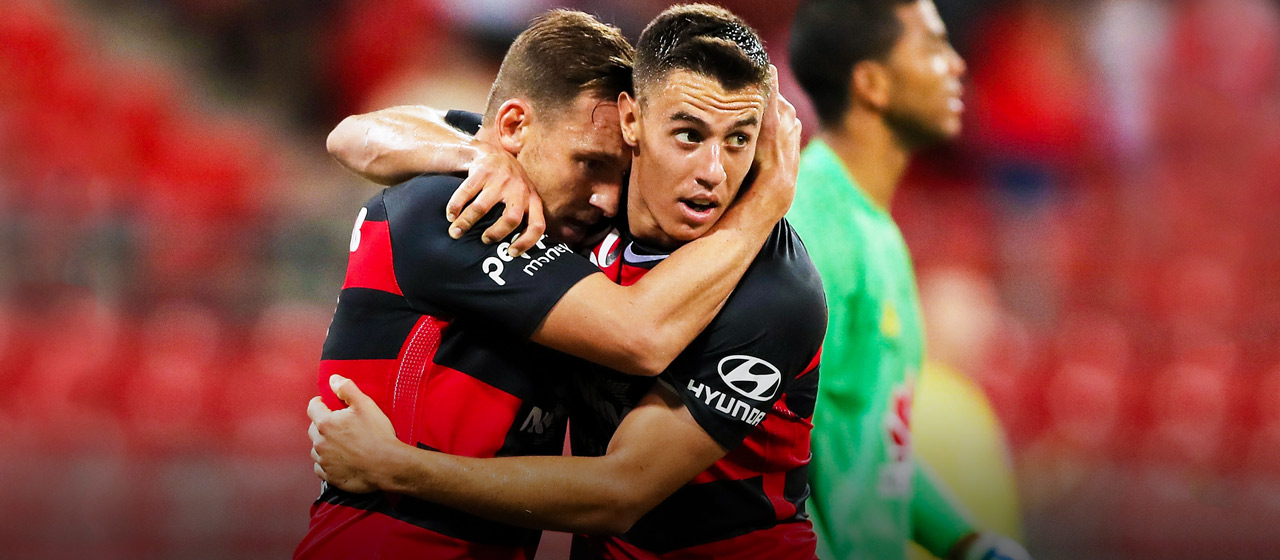
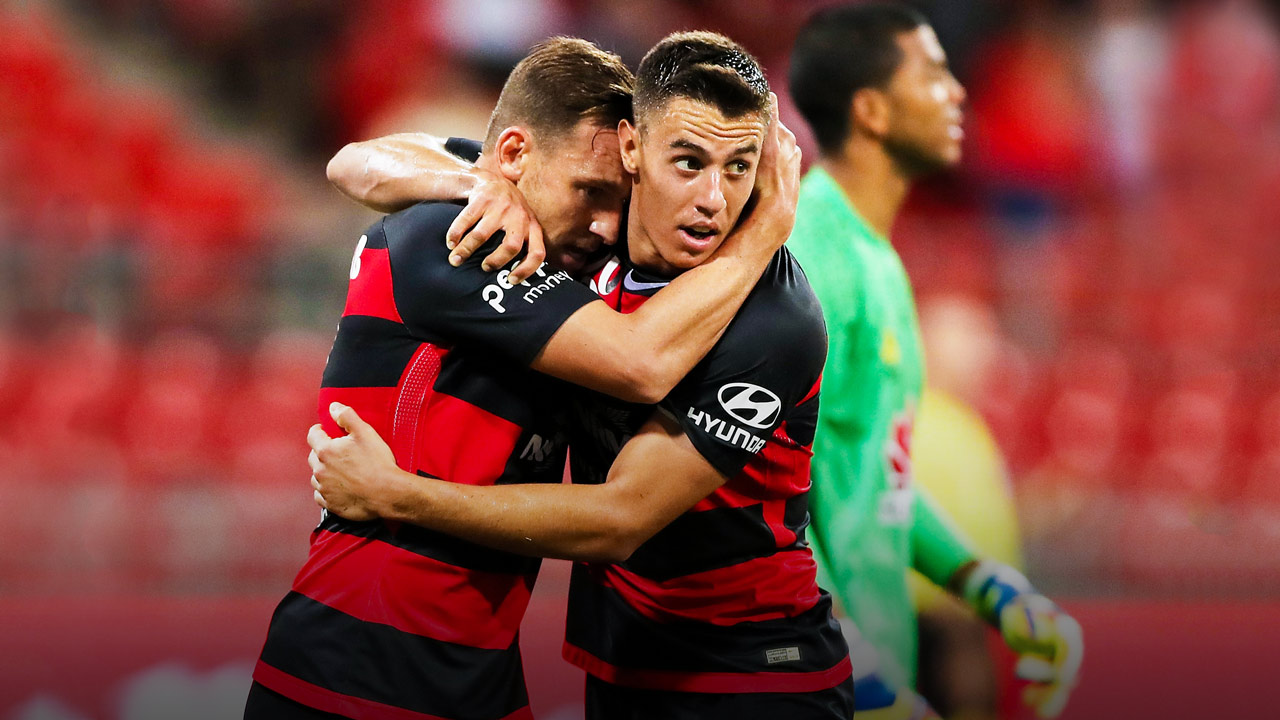
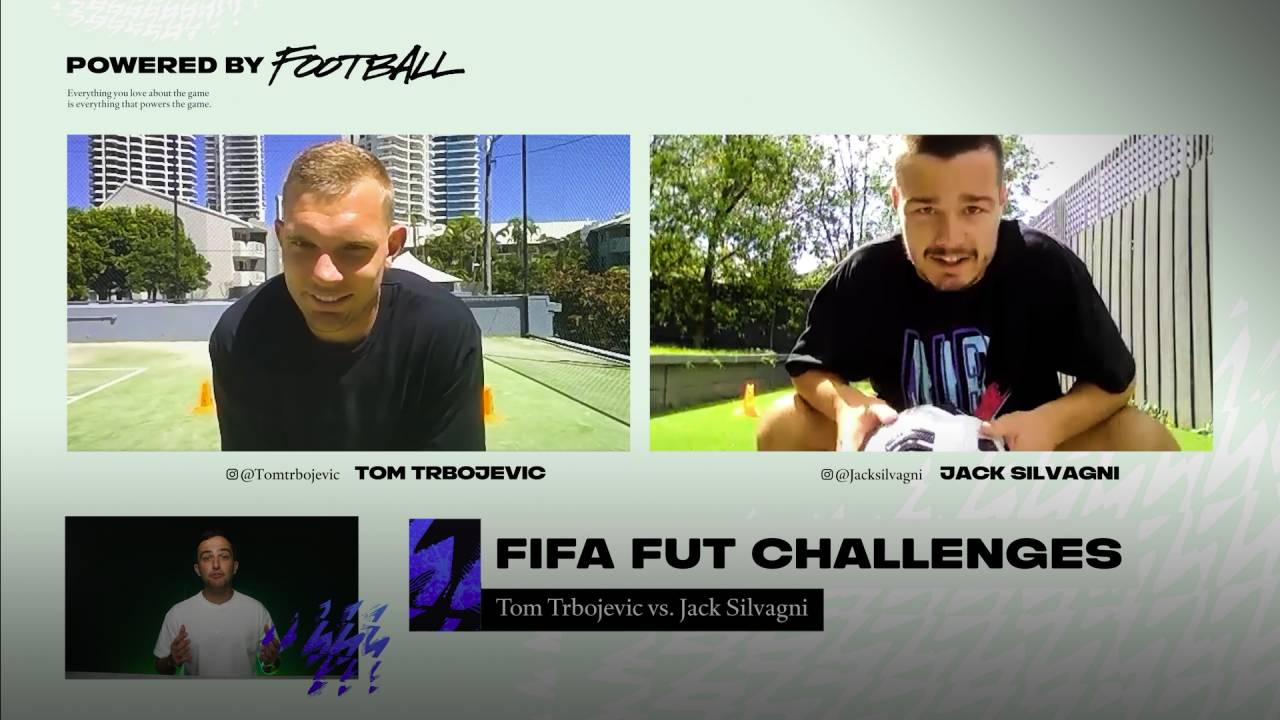
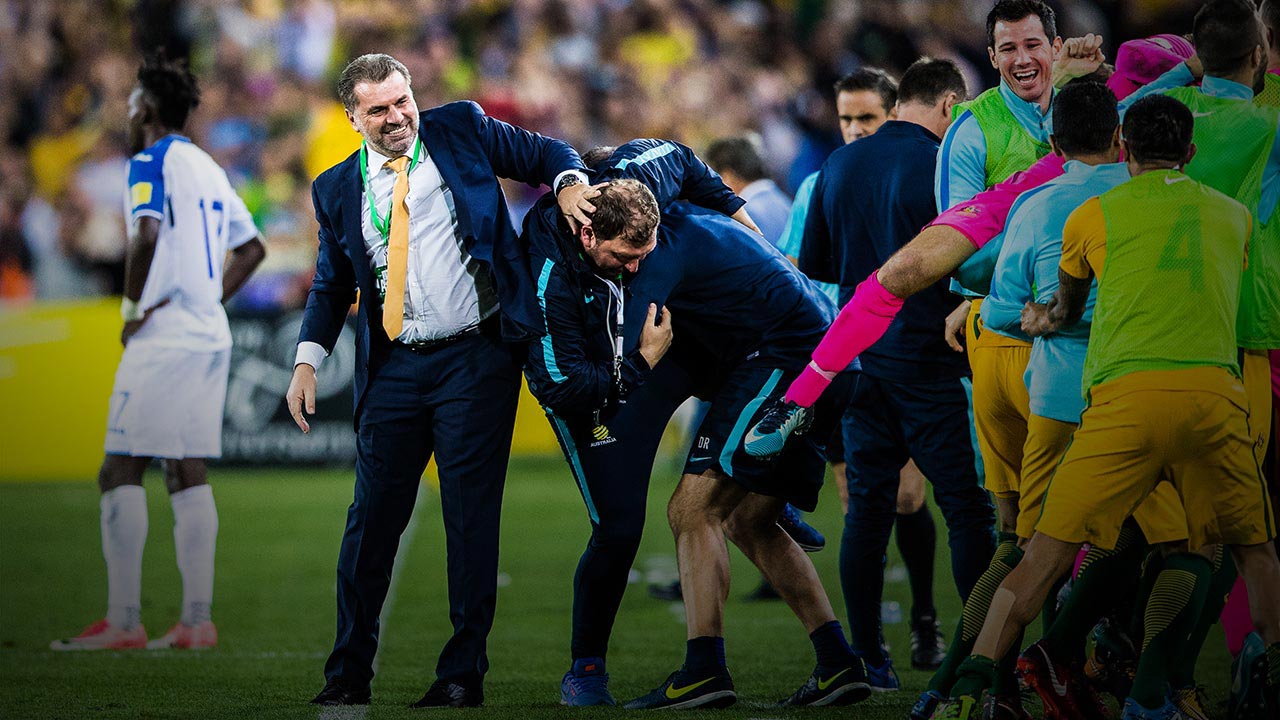
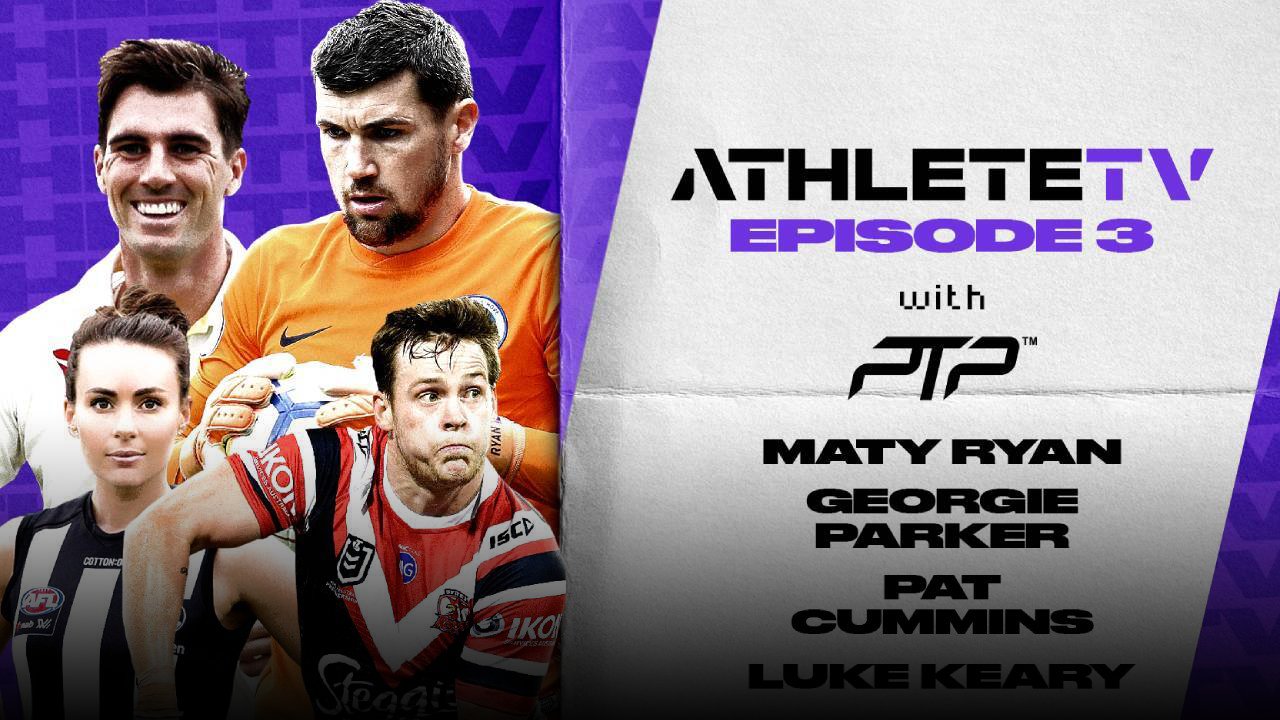
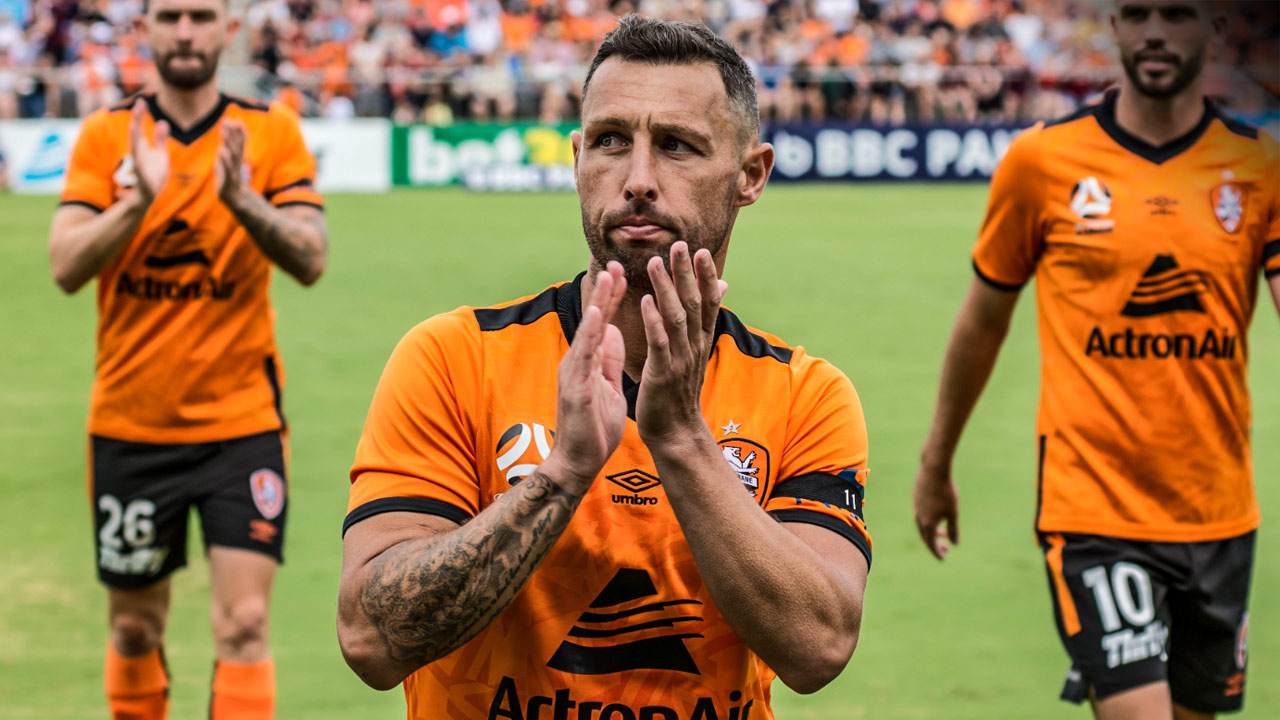
 Load More
Load More